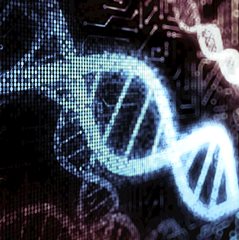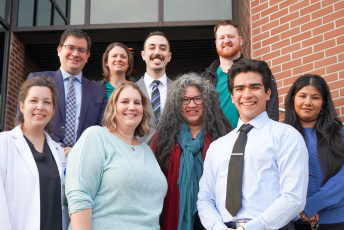Genetics - Reproductive Options in HD
Pre-implantation Genetic Diagnosis
Pre-implantation genetic diagnosis (PGD) is a way to test an embryo before it’s implanted in a woman’s uterus. Using IVF (In Vitro Fertilization) techniques, the egg and sperm are combined outside the body. Once the embryo reaches a certain level of development it can be tested to see if it carries the gene causing HD. Only embryos that are unaffected with HD are implanted in the woman’s uterus. PGD can also be done in a way that doesn’t disclose the at risk parent’s status if that’s how the couple outlines the process with the lab.
In the following video, Stacy Brookhyser describes her personal experience with PGD, starting as an at-risk newlywed concerned about knowing her own gene status, and ending as a joyful mother of two healthy daughters who are HD-free.
You can find more information about PGD and read an inspiring story of hope at hdfreewithpgd.com.
Prenatal Diagnosis
Prenatal Diagnosis is the process of testing a baby while in the pregnant uterus to determine if the baby has inherited Huntington's disease (HD) or not. This can be done two different ways:
- CVS (Chorionic Villus Sampling) is done typically between 10-13 weeks of pregnancy. A piece of the developing placenta is removed either through a woman’s cervix or abdomen using a catheter or needle. This tissue is 99 percent genetically identical to the fetus so DNA testing can be done for HD status and a result given. CVS carries a risk for miscarriage that can vary slightly from center to center but is usually in the range of 1/100-1/500.
- Amniocentesis is typically performed between 15-20 weeks of pregnancy. Amniotic fluid that surrounds the baby is removed from the uterus using a thin needle. This fluid contains cells from the baby that can be isolated, grown in the lab, and tested for HD status. Again, amniocentesis carries a risk for miscarriage that can vary slightly from center to center but is usually in the range of 1/200-1/500.
A genetic counselor can help you understand these testing options in more detail.
Testing Children
 At present, the HDSA and the National Society of Genetic Counselors, in conjunction with researchers and clinicians involved in caring for people and families with Huntington's disease, do not support the testing of anyone under 18 who is at risk for developing Huntington's disease, unless they have symptoms of the condition that require medical treatment.
At present, the HDSA and the National Society of Genetic Counselors, in conjunction with researchers and clinicians involved in caring for people and families with Huntington's disease, do not support the testing of anyone under 18 who is at risk for developing Huntington's disease, unless they have symptoms of the condition that require medical treatment.
And for additional information about genetic testing for HD, please visit the following pages:


